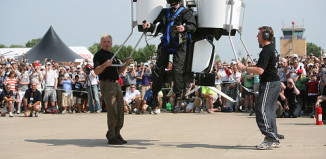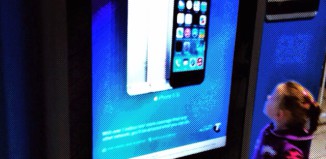Home Syndicated
Syndicated
This is the firehose, all external content syndicated into the site.
The Hidden History of Ed-Tech
Audrey Watters on LMS, VLE, and how we got to where we are in online education, which is not pretty.http://www.hackeducation.com/2014/06/18/unfathomable-cetis2014/
#TVSZ 4.0
Now I am big fan of #TVSZ, a zombie twitter game as you may or not know. I've written about it here and here. I've created movies (sadly more than one!) about zombies. So you can tell that I think #TVSZ is an wonderful learning experience. The brainchi...
CLMOOC Making Learning Connected
How to be a participant in CLMOOC To learn how to be participate in Making Learning Connected, otherwise known as CLMOOC, I recommend this Dave Cormier video, “Success in a MOOC“. CLMOOC is a community where people can learn how to do or be anything they want to. One of the goals for CLMOOC is to engage […]
Audience, red ink, and a Tinder digression
I’ve been reading my students’ first Inquiry Project blog posts in which I asked them to write about how they use social media, or how they “live” online. I imagined their posts to be part reflective, but also part argumentative, in that explaining how they live online would force them to articulate how a […]
The Age of Bite-Sized Learning: What is It and Why It Works
"Bite-size content is easier to digest, understand and remember," according to brain-based e-learning theory.
Catherine Cronin: Assessment in Open Spaces
"Once a closed classroom (physical or online) becomes open to the world, assessment options multiply, with many more opportunities for student choice, voice and creativity, and of course, feedback."
10 Blended Learning Trends Infographic | e-Learning Infographics
Comprehensive infographic about blended learning: trends, components, aspects. Via: www.dreambox.com Filed under: Open Assembly News
New Book: “”Harold Garfinkel: The Creation and Development of Ethnomethodology” Left Coast Press
A bit of self-advertisement… in May my book “Harold Garfinkel: The Creation and Development of Ethnomethodology” was published by Left Coast Press. The book discusses Garfinkel’s creation of ethnomethodology, its anticipation of and important influence on a range of contemporary developments in sociology, including the sociology of science and technology, the new sociology of knowledge, the sociology of work, gender studies and others. …
John Maeda on Creativity, Audacity and Making Your Own Luck
https://thegreatdiscontent.com/john-maeda
Nugget for Man-Computer Symbiosis
In reading through the Licklider article, it was easy to get sidetracked noting the changes in technology that followed a decade or two after he wrote it. With the development of integrated circuit technology and microprocessors, there is no need … Continue reading →
The CLMOOC Bank: It Flies!
creative commons licensed ( BY ) flickr photo shared by martinjetpack A few weeks (or more) ago Karen Fasimpaur asked me if the new DS106 Assignment Bank as a WordPress theme was reliable enough to be used for the 2014 Making Learning Connected MOOC. I forget her exact words, but something like, “Can you re-assure us that it will not blow up?” I do question guarantees, even more so when it comes to Other People Using My Code, but offered to assist in anyway. No smoke or flames are in sight, but they turned on the lights this week for the CLCMOOC Make Bank where the items are “makes” For those new to the idea of “makes,” they are a big part of #clmooc. Over the course of the MOOC, there will be multiple Make Cycles during which time we’ll all be prompted to create and build, digitally as well […]
New Experiences and Different Perspectives
creative commons licensed (BY-NC-SA) flickr photo by mrkrndvs: http://flickr.com/photos/aaron_davis/14422391611Yesterday I took my daughter on her first train trip into the city. She had a ball and loved every minute, but what struck me was what grabbe...
Week One Progress Report
Launched and in orbit. As an open participant, I have tried to complete assignments like everyone else. Read the article (a couple of times), posted nugget and concept experience, commented on a few posts. And tweeted here and there. And … Continue reading →
:For Librarians
The four modules of Webmaker Training are somewhat non-specific. They are mainly designed to be an on-ramp for people who don’t have much experience with trying to #TeachTheWeb or people who are new to our community and the idea of Connected Learning. The four modules are the basics of what we as a community care about and why. We’ve tried to gather information that is useful when people are beginning to think about their involvement in the Mozilla community and in Maker Party, and we’ve tried to help people develop digital skills by prompting them to make using free and open tools.
Since we have a wide reaching and global community, we have lots of different interests to think about. With Webmaker Training, I feel like we’ve found a model that can work for any interest, so I’m excited to see if I’m right.
 made for TV gone B Movie Franchise![/caption]
In the fall, we will be running Webmaker Training: For Librarians as our first specific interest group. In thinking about the specific learning modules librarians would need, I felt like I need a little bit of backup. So I used me some connected networking skills and I reached out to some Mozillians who know libraries and librarians*.
made for TV gone B Movie Franchise![/caption]
In the fall, we will be running Webmaker Training: For Librarians as our first specific interest group. In thinking about the specific learning modules librarians would need, I felt like I need a little bit of backup. So I used me some connected networking skills and I reached out to some Mozillians who know libraries and librarians*.
 Public[/caption]
[caption id="" align="alignright" width="291"]
Public[/caption]
[caption id="" align="alignright" width="291"] Academic[/caption]
Solution 4: I think we can solve this with modularity. Kaitlin and Greg over at the Mozilla Science Lab and Software Carpentry have been working with academic research librarians, so we have a jumping off place for things like data skills, indexing, unix, etc. I mean, look at these lessons.
5. There’s a difference between urban vs rural libraries.
Solution 5: Oh yeah, I know! What can a rural librarian teach an urban librarian and vice versa? How does technology play a part in each library? What resources do libraries need? Let’s MAKE them together!
6. Librarians have some of the pedagogy stuff, so we need to have a stronger focus on the technical details.
Solution 6: That aligns with my sense that we need some smaller more focused “skill” modules ;) It was also mentioned that Webinars, videos and anything people can consume at work world be helpful, so I’m thinking popcorn videos should make their way to http://training.webmakerprototypes.org
7. This group needs to understand how they can use this network and why it’s valuable to them.
Solution 7: This is a discussion we should have together, but we have lots of case studies we can put together in an easily digestible format. Webpage to ebook anyone?
Academic[/caption]
Solution 4: I think we can solve this with modularity. Kaitlin and Greg over at the Mozilla Science Lab and Software Carpentry have been working with academic research librarians, so we have a jumping off place for things like data skills, indexing, unix, etc. I mean, look at these lessons.
5. There’s a difference between urban vs rural libraries.
Solution 5: Oh yeah, I know! What can a rural librarian teach an urban librarian and vice versa? How does technology play a part in each library? What resources do libraries need? Let’s MAKE them together!
6. Librarians have some of the pedagogy stuff, so we need to have a stronger focus on the technical details.
Solution 6: That aligns with my sense that we need some smaller more focused “skill” modules ;) It was also mentioned that Webinars, videos and anything people can consume at work world be helpful, so I’m thinking popcorn videos should make their way to http://training.webmakerprototypes.org
7. This group needs to understand how they can use this network and why it’s valuable to them.
Solution 7: This is a discussion we should have together, but we have lots of case studies we can put together in an easily digestible format. Webpage to ebook anyone?
Enter the Librarian.
[caption id="" align="alignright" width="200"] made for TV gone B Movie Franchise![/caption]
In the fall, we will be running Webmaker Training: For Librarians as our first specific interest group. In thinking about the specific learning modules librarians would need, I felt like I need a little bit of backup. So I used me some connected networking skills and I reached out to some Mozillians who know libraries and librarians*.
made for TV gone B Movie Franchise![/caption]
In the fall, we will be running Webmaker Training: For Librarians as our first specific interest group. In thinking about the specific learning modules librarians would need, I felt like I need a little bit of backup. So I used me some connected networking skills and I reached out to some Mozillians who know libraries and librarians*.
Notes about this audience
1. Jennie said that one of her favorite quotes from the “sleep cell librarian crew” in our community was“Librarians are trained by vendors.”She explained that it’s normally proprietary software that ends up in libraries and, thus, librarians are helping people use that stuff. Solution 1: We’re a “vendor”, our software is the Web. Bam. 2. It was also pointed out to me that whether or not a librarian can justify his participation in #TeachTheWeb to a library director will determine if the modules are successful or not. Solution 2: Everything is open and free. I guess that most libraries in N. America are members of the ALA, but their e-learning resources are…uh…not free. Also, there’s not much in the way of information literacy or digital making in their e-learning catalog, so programs like Webmaker Training can augment. I don’t really know what a library director is looking for, but libraries are the perfect establishments for things like Maker Parties, digital skills workshops, web - ahem - literacy work. 3. There is a huge age gap in librarians, so there’s also a huge skill gap when it comes to technology. Solution 3: Karen suggested facilitating connections between generations, and I like this idea. I also think that modules for developing specific technical skills are a good idea. 4. There’s a difference between academic vs public libraries. [caption id="" align="alignnone" width="300"]
 Public[/caption]
[caption id="" align="alignright" width="291"]
Public[/caption]
[caption id="" align="alignright" width="291"] Academic[/caption]
Solution 4: I think we can solve this with modularity. Kaitlin and Greg over at the Mozilla Science Lab and Software Carpentry have been working with academic research librarians, so we have a jumping off place for things like data skills, indexing, unix, etc. I mean, look at these lessons.
5. There’s a difference between urban vs rural libraries.
Solution 5: Oh yeah, I know! What can a rural librarian teach an urban librarian and vice versa? How does technology play a part in each library? What resources do libraries need? Let’s MAKE them together!
6. Librarians have some of the pedagogy stuff, so we need to have a stronger focus on the technical details.
Solution 6: That aligns with my sense that we need some smaller more focused “skill” modules ;) It was also mentioned that Webinars, videos and anything people can consume at work world be helpful, so I’m thinking popcorn videos should make their way to http://training.webmakerprototypes.org
7. This group needs to understand how they can use this network and why it’s valuable to them.
Solution 7: This is a discussion we should have together, but we have lots of case studies we can put together in an easily digestible format. Webpage to ebook anyone?
Academic[/caption]
Solution 4: I think we can solve this with modularity. Kaitlin and Greg over at the Mozilla Science Lab and Software Carpentry have been working with academic research librarians, so we have a jumping off place for things like data skills, indexing, unix, etc. I mean, look at these lessons.
5. There’s a difference between urban vs rural libraries.
Solution 5: Oh yeah, I know! What can a rural librarian teach an urban librarian and vice versa? How does technology play a part in each library? What resources do libraries need? Let’s MAKE them together!
6. Librarians have some of the pedagogy stuff, so we need to have a stronger focus on the technical details.
Solution 6: That aligns with my sense that we need some smaller more focused “skill” modules ;) It was also mentioned that Webinars, videos and anything people can consume at work world be helpful, so I’m thinking popcorn videos should make their way to http://training.webmakerprototypes.org
7. This group needs to understand how they can use this network and why it’s valuable to them.
Solution 7: This is a discussion we should have together, but we have lots of case studies we can put together in an easily digestible format. Webpage to ebook anyone?
Digestion.
I’ve had quite a bit to think about in terms of how :For Librarians can fit into overarching visions of what Webmaker Training is or should become. These are my initial thoughts after digesting everything the “Mozillarians” had to say. I’d appreciate it if you collaborate with me on this by giving feedback, adding thoughts, curating content, donating ideas for good make prompts and otherwise help me push :For Librarians further.Ideas for NEW modules
- Logistics (how to organize a Webmaker event / Maker Party - could be an education remix of the Event kits!), maintaining and developing free public spaces (finding funding and programming opportunities, understanding distribution).
- Building Online Networks (setting up a blog, HTML basics, online networking)
- Privacy and Security for Public Spaces (How to make online anonymity default, 3rd party cookies, https, do not track, Lightbeam)
Ideas for Building :For Librarians
As I said, we have lots of amazing baseline content. We don’t need an entirely new Building module, we need learning activities that would be valuable to lots of librarians. So what does each librarian want to make that would immediately benefit his/her library? A couple ideas for make prompts:- Make your typical learner profile (who are your largest group of patrons? Marginalized teens? Seniors? Children?)
- Teaching Kit for Computer Basics (click, double click). I found this resource, got excited about what the community could do with it.
- Top ten programs at your library
- Top ten problems your library has
- Teaching Kit for Searching (Especially in North America, library patrons are often elderly or disadvantaged who need basic training in everyday internet usage. Librarians are teaching people how to find health info, filing taxes, etc. How can we teach those basic skills in a way that people to keep coming to the library to level up?)
- What else? Help!
Discourse discussions we should have
- Best practices for encouraging critical literacies Honest and Open communication; (Exploring - could be based on typical learner profile) Community building (Connecting - could be based on “top ten programs”)
The Grand MOOC Experiment: Dawn
A few concepts that I believe are central to the beginning of this summer MOOC from a faculty engagement perspective include: creative problem solving, pragmatism, excitement and surprise. The Faculty Team Creative problem solving: the devil’s in the details when it comes to writing code. The design team seems to be working around the clock […]



